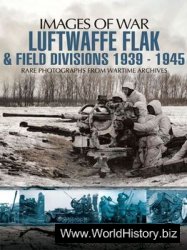The English word “history” has two principal meanings. In the first place it is commonly used as a synonym for “the past.” When we talk about “great men and women in history,” we are referring to individuals whose deeds and achievements took place in the past: the “historic streetcars” of San Francisco are antique vehicles from around the world that have been preserved and pressed back into service; and when we say that someone or something “is history,” we mean that they no longer possess any relevance in the present. A subsidiary definition of this first meaning of history involves the notion of progress or development in the past - histories of art, for instance, are concerned with studying the art of the past but generally seek to trace the evolution of artistic themes and styles over time. The second meaning of “history” indicates the study of the past - a definition that is closest to the etymological derivation of the word (from the Greek historia, meaning “inquiry”). In this case, the term denotes the act, or practice, of study rather than its object. In English, the distinction between these two meanings is not always clear-cut. When, for example, we say that “history teaches us that the denial of national or ethnic selfdetermination is likely to provoke separatist movements,” we are stating that the study of the past suggests to us that this is a likely consequence but we are also implying that the past itself presents documented examples whose lessons we should heed. This definitional ambiguity arises from a widespread assumption that the practice of history is simply to “unearth” the past - in other words, that the past is capable of speaking for itself, provided that the historian rescues it from oblivion and assists in giving it a voice. In this sense, “history as practice” is dependent upon, and derivative of, “history as the past.”
That interpretation of history was challenged in 1961 by Edward Hallett Carr in a book entitled What is History? - a revised version of the George Macaulay Trevelyan Lectures that he had delivered earlier that year at the University of
Cambridge. A former civil servant with the British Foreign Office, editorial writer for the London Times, professor of politics, and author of the fourteen-volume History of Soviet Russia, Carr defined history as “a continuous interaction between the historian and his facts, an unending dialogue between the present and the past” (1987: 30). His definition of a historical fact, however, was anything but conventional for his day. Attacking what he characterized as a “nineteenth-century fetishism of facts” - represented above all by the German historian Leopold von Ranke’s insistence that the historian’s task was to show “how it actually was” (wie es eigentlich gewesen), as well as the positivist tendency to draw conclusions from facts (i. e. the “inductive method”) and the British empiricist tradition which posited a sharp distinction between subject and object, Carr argued that not all facts in the past are historical facts and that it is the historian who decides which facts should be considered significant and in what order of significance they should be ranked. In short, it was ridiculous to imagine that there existed any objective historical facts “out there,” independent of the interpretation of the historian.
At first sight, Carr would seem to have been giving priority to the practice of history over the establishment of what actually happened in the past and, indeed, he is sometimes regarded as a relativist - as someone, that is, who believes that every truth claim or historical interpretation possesses equal validity. As such, his work is often contrasted to that of his conservative contemporary Geoffrey Elton (the son of the classicist Victor Ehrenberg), who argued that the subject matter of history was events themselves rather than the evidence for them that the historian needs to interpret. In reality, however, Carr did believe in an objective truth and his efforts to challenge the self-evident nature of historical facts were actually attempts to discredit earlier “liberal” histories against which, as a Marxist, he was ideologically predisposed. For Carr, an “objective” history could not be divined from events of the past alone but only from understanding them in a broader perspective that comprehended the evolutionary progress of history and could make sense of past actions and events through reference to the future directions that history would take. In other words, a superior history depended upon the historical skill of the practitioner but this was itself a function of the historian’s ability to mediate between the events of the past and the emerging goals of the future.
Like the English “history,” the German word Geschichte describes both the past and the study of the past, but it can also mean a “story,” “tale,” or “fable,” and this triple meaning of “history as the past,” “history as practice,” and “history as narrative” is also inherent in the French word histoire, the Italian storia, and the Modern Greek istoria. To Anglophones this inability to distinguish between “factual” and “fictional” accounts can appear decidedly odd, even if the English word “history” was also once used in the same sense. This third meaning of history “as narrative” is one that has, in recent decades, been championed by the American theorist Hayden White.
For White the past is vanished and can never be represented mimetically or in its totality in any historical account. All that remains of it are fragmentary “traces” which are normally themselves already textualized (i. e. represented in narrative form in documents or other records). These isolated traces, or what White calls the “unprocessed historical record,” have no meaning in themselves - they tell no story. What the historian does is, firstly, to arrange them into a chronological sequence or “chronicle”; secondly, to shape the chronicle into a story with a beginning, middle, and end; and, thirdly, to transform the story into a narrative by means of a series of standard devices. These devices include the ideological stance that the historian adopts (conservative; liberal; radical; anarchist), the mode of argument employed (organicist; contextualist; mechanistic; formist), and the specific type of emplotment chosen (comedy; satire; tragedy; romance). White believes, however, that the choice between these various options is not entirely contingent; rather, it is linguistically predetermined by the “trope,” or rhetorical mode of representation, in which the historian writes (metaphor; metonymy; synecdoche; irony). The historical text is, therefore, primarily a literary artifact - the techniques by which it is produced vary little, if at all, from those employed by novelists - and this is because the historian needs to code what is essentially unfamiliar (the traces of the past) in a literary form that is both familiar to, and recognizable by, an audience. The traces or “facts” may be “discovered” by the historian, but the narrative created from them is largely imagined and invented, and this means that moral or aesthetic considerations, rather than issues of evidence, are the only criteria available for judging the relative merits of different interpretations or visions of history.
White’s interpretation of history has been enthusiastically endorsed by postmodernist scholars, dissatisfied with what they consider the uncritical certainties and epistemological naivete of more traditional historians. Keith Jenkins, for example, argues that no history - or historian - is ideologically disinterested or neutral, that all histories are compiled from the standpoint of the present, that all histories are imagined rather than discovered, that no history can truly correspond to the actuality of a now absent past, and that all history is really historiography - the product of the historian rather than of the past. Unsurprisingly, such interpretations have also provoked an equally trenchant reaction from more traditional historians who resent what they see as the encroachment upon their discipline by literary critics and social theorists. Books with titles such as Telling the Truth About History, In Defense of History, and The Killing of History seek - with varying degrees of sobriety - to defend cherished notions such as truth, objective knowledge, and disinterested science against what is dubbed the agnosticism, relativism, and nihilism of postmodernist scholars.
Ironically, the radically different interpretations of both the postmodernists and the traditionalists are the product of the same “emplotment” of how history has been studied. That is to say, for both parties the three definitions of history outlined above are often regarded as three different chronological stages in the philosophy of history. First there was the straightforward view of history “as the past,” as espoused by Ranke; then, greater emphasis was placed on the subjective interpretation of the historian - a move associated in British scholarship with the name of Carr, though the American historians Charles Beard and Carl Becker had made similar pronouncements before the First World War; and finally, the practice of history was divorced from the past by stressing the imaginative and fictive nature of historical writing. For postmodernists, the basic story is one of an emancipation from the tyranny of the past, whereas for traditionalists it is a flight of fantasy away from common-sense realities. Yet, as we have already seen, in many languages the word for history denotes all three meanings simultaneously, and if we take this tripartite definition more seriously then the central tenets of the postmodernist critique are considerably less radical than their proponents pretend but also potentially more illuminating than many traditionalists are prepared to concede.




 World History
World History









